Yun-Fei Niu
Active Learning on a Programmable Photonic Quantum Processor
Aug 03, 2022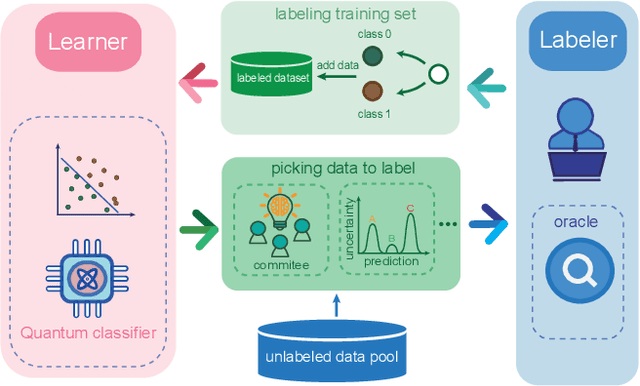
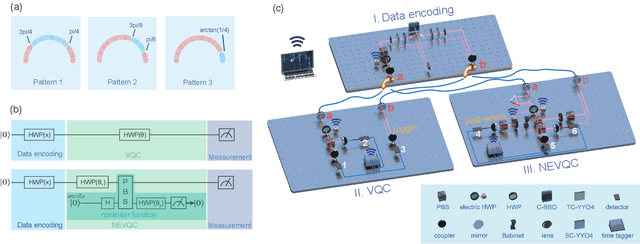
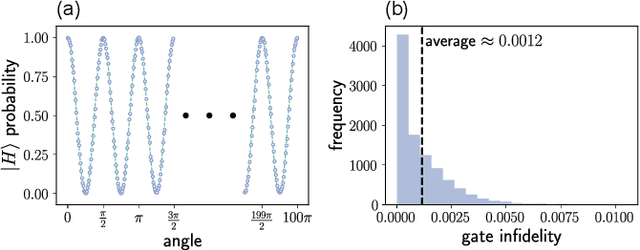

Abstract:Training a quantum machine learning model generally requires a large labeled dataset, which incurs high labeling and computational costs. To reduce such costs, a selective training strategy, called active learning (AL), chooses only a subset of the original dataset to learn while maintaining the trained model's performance. Here, we design and implement two AL-enpowered variational quantum classifiers, to investigate the potential applications and effectiveness of AL in quantum machine learning. Firstly, we build a programmable free-space photonic quantum processor, which enables the programmed implementation of various hybrid quantum-classical computing algorithms. Then, we code the designed variational quantum classifier with AL into the quantum processor, and execute comparative tests for the classifiers with and without the AL strategy. The results validate the great advantage of AL in quantum machine learning, as it saves at most $85\%$ labeling efforts and $91.6\%$ percent computational efforts compared to the training without AL on a data classification task. Our results inspire AL's further applications in large-scale quantum machine learning to drastically reduce training data and speed up training, underpinning the exploration of practical quantum advantages in quantum physics or real-world applications.
Parameter-Parallel Distributed Variational Quantum Algorithm
Jul 31, 2022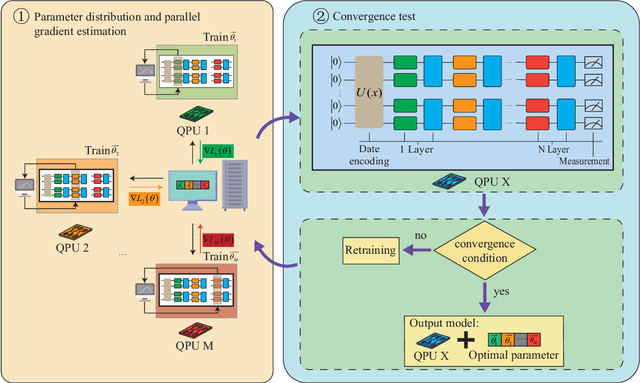
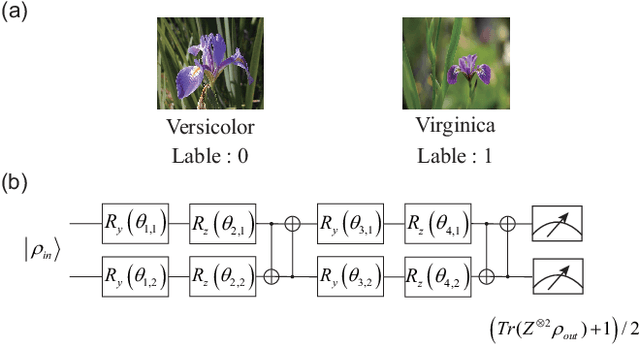
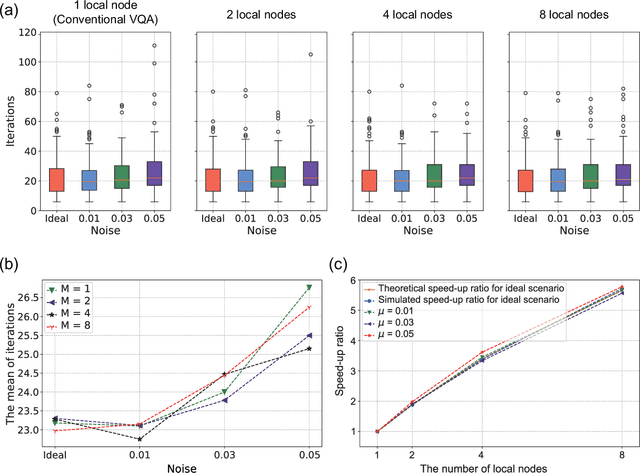

Abstract:Variational quantum algorithms (VQAs) have emerged as a promising near-term technique to explore practical quantum advantage on noisy intermediate-scale quantum (NISQ) devices. However, the inefficient parameter training process due to the incompatibility with backpropagation and the cost of a large number of measurements, posing a great challenge to the large-scale development of VQAs. Here, we propose a parameter-parallel distributed variational quantum algorithm (PPD-VQA), to accelerate the training process by parameter-parallel training with multiple quantum processors. To maintain the high performance of PPD-VQA in the realistic noise scenarios, a alternate training strategy is proposed to alleviate the acceleration attenuation caused by noise differences among multiple quantum processors, which is an unavoidable common problem of distributed VQA. Besides, the gradient compression is also employed to overcome the potential communication bottlenecks. The achieved results suggest that the PPD-VQA could provide a practical solution for coordinating multiple quantum processors to handle large-scale real-word applications.
 Add to Chrome
Add to Chrome Add to Firefox
Add to Firefox Add to Edge
Add to Edge